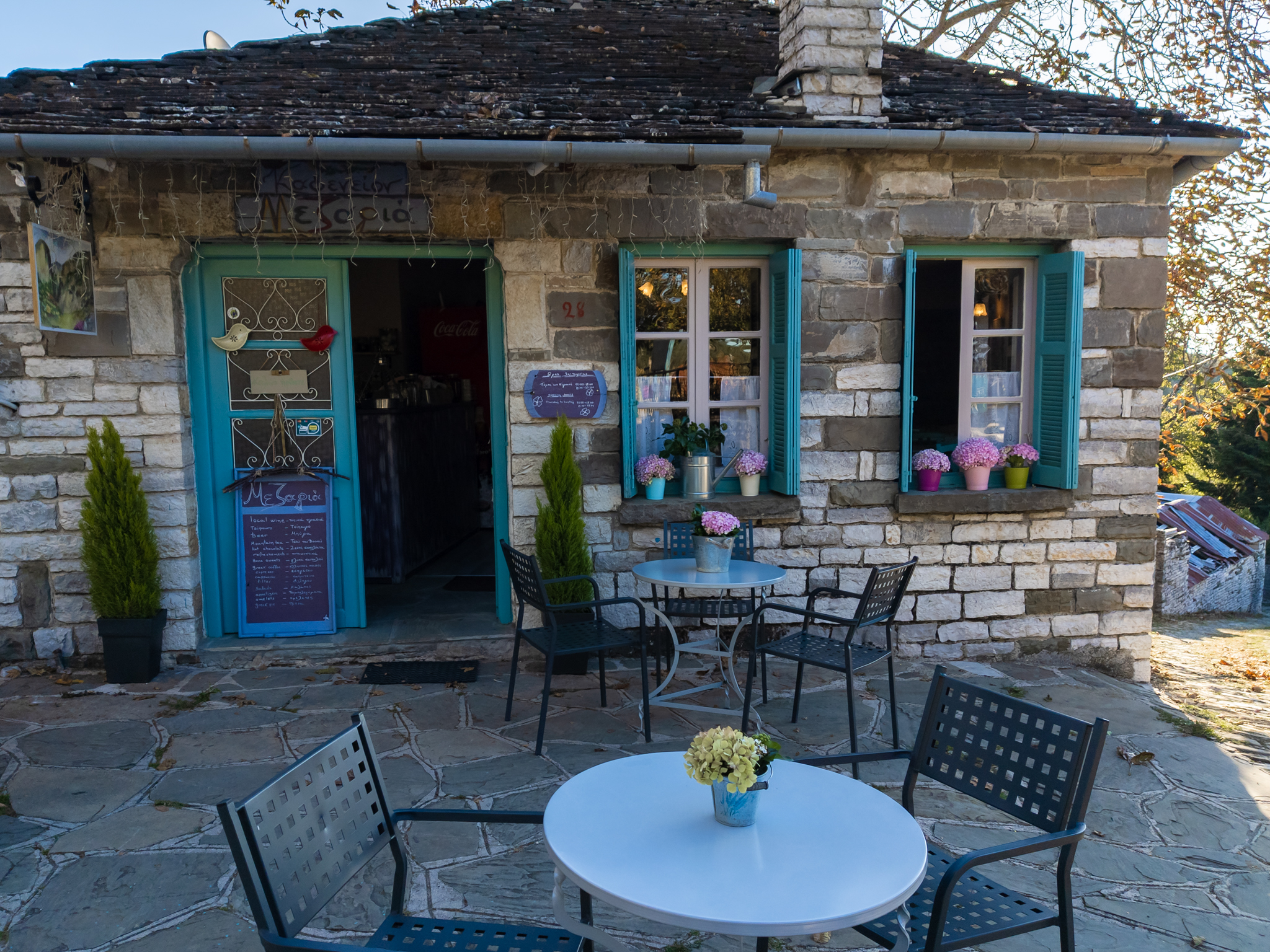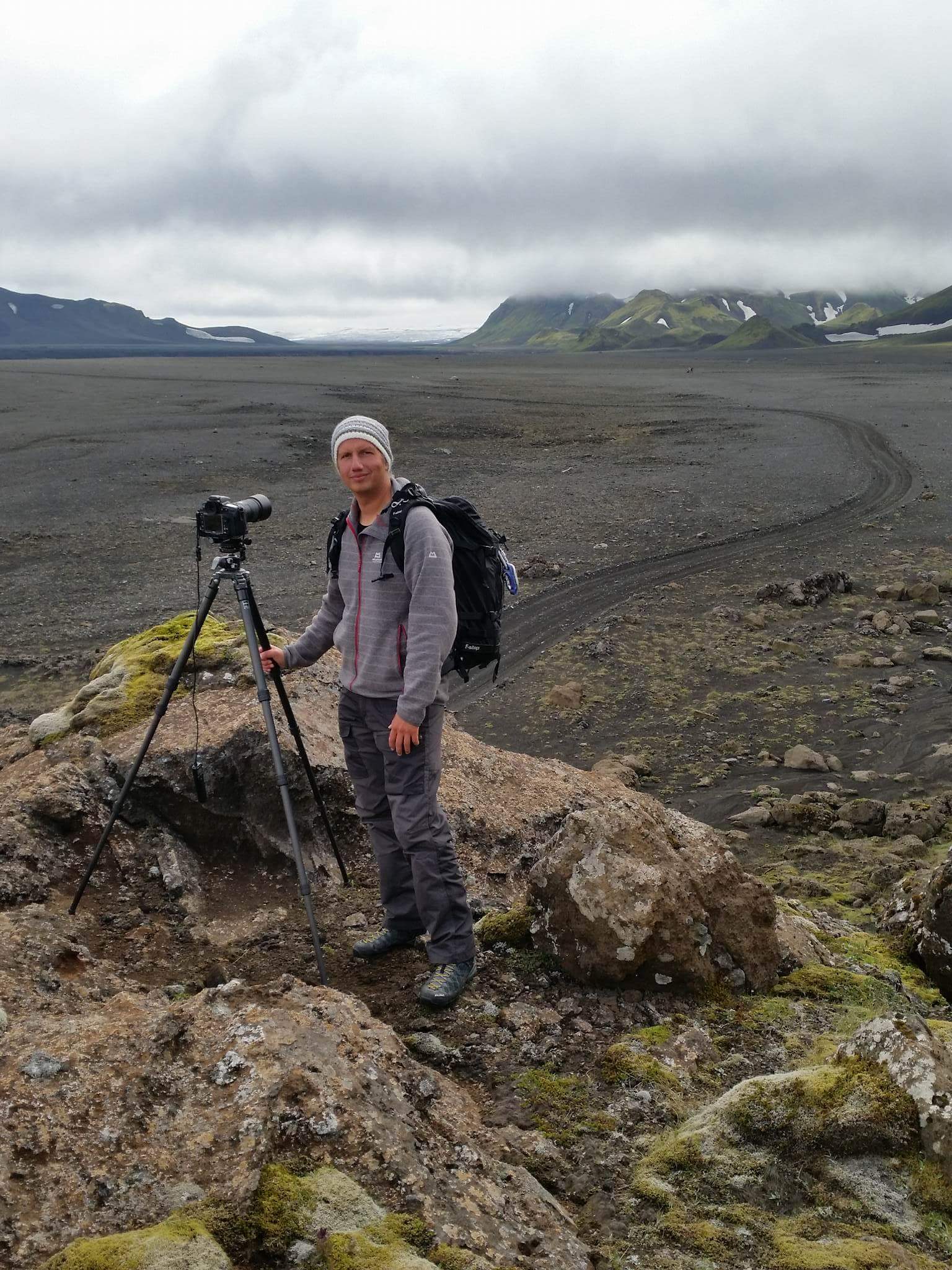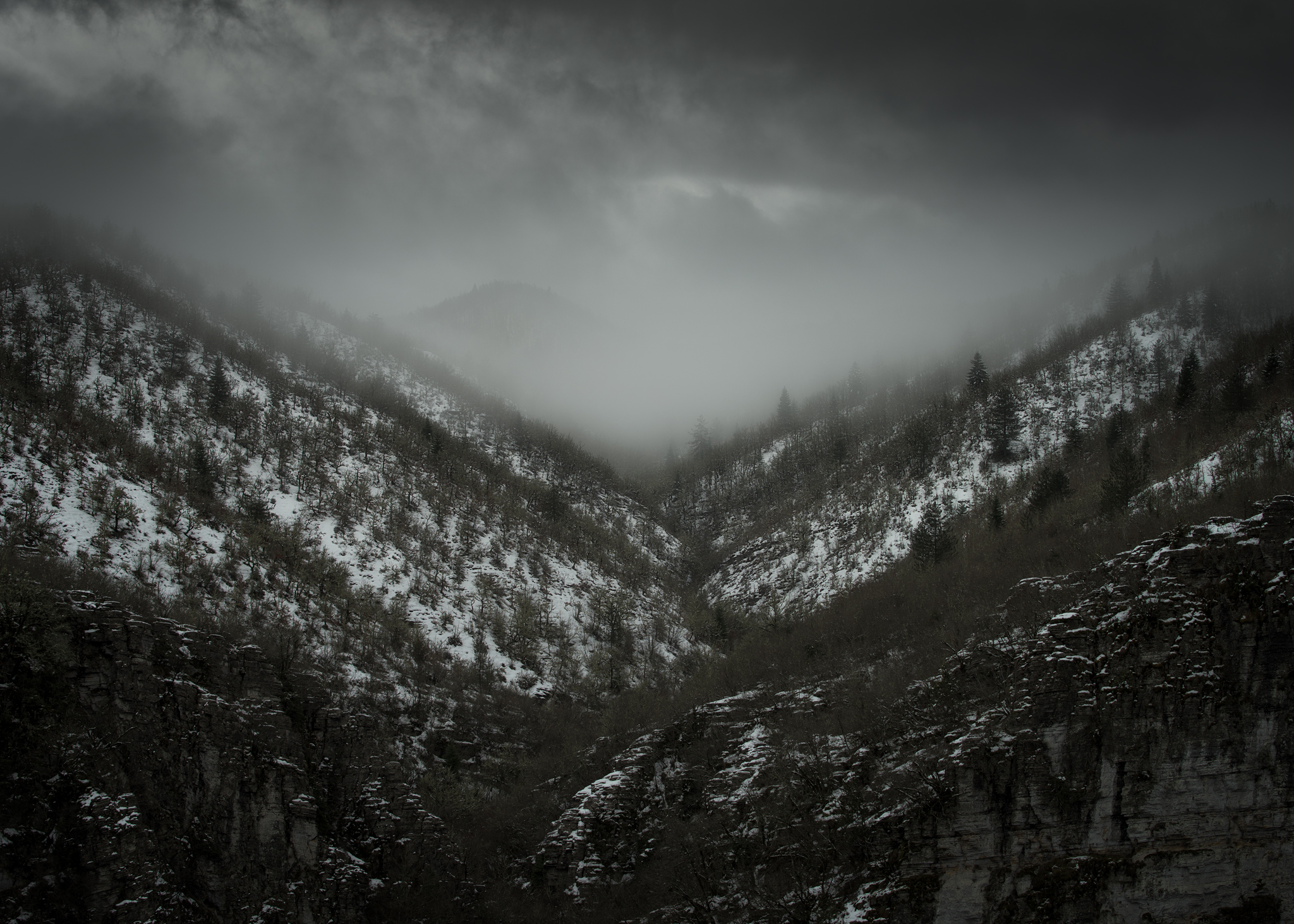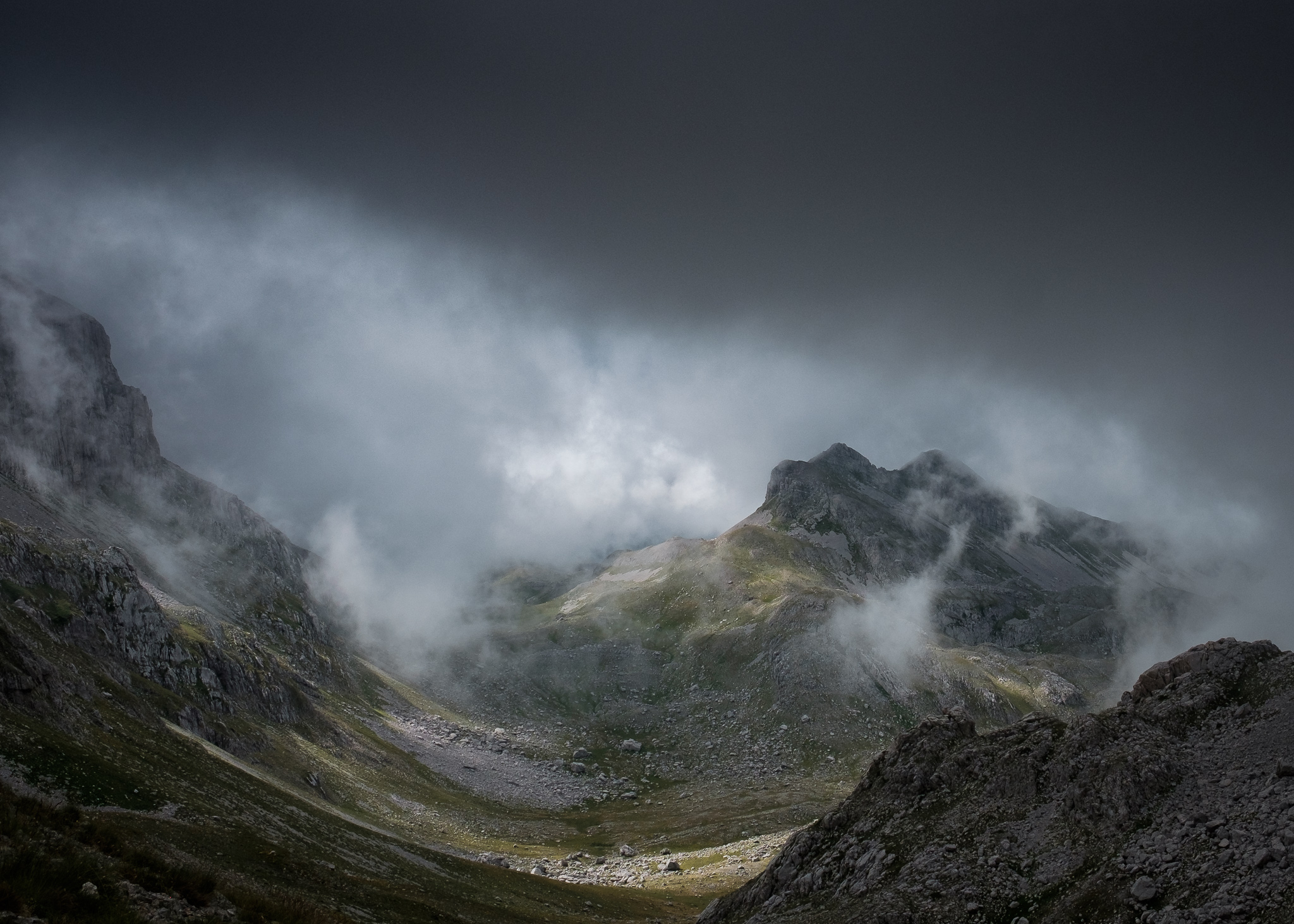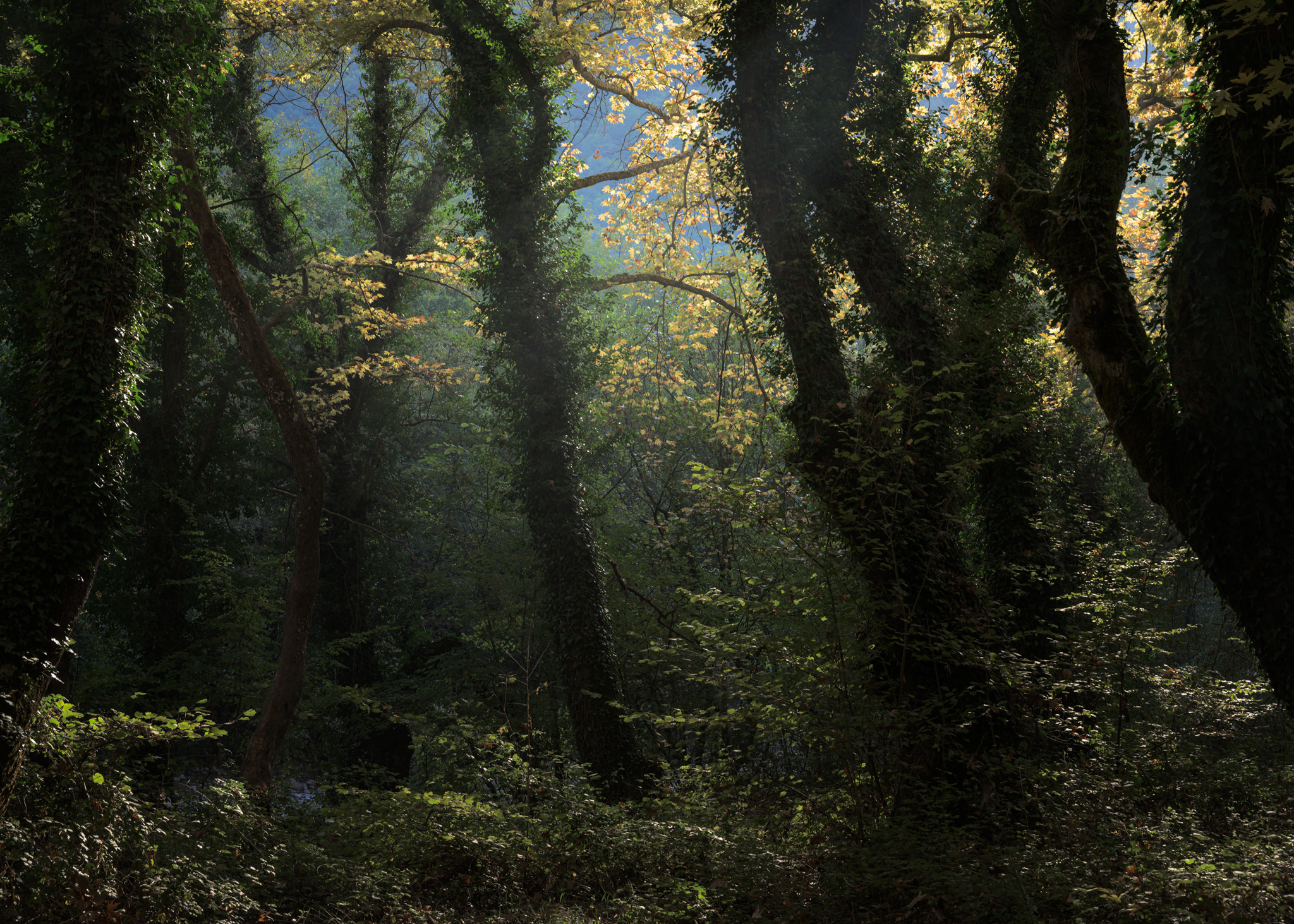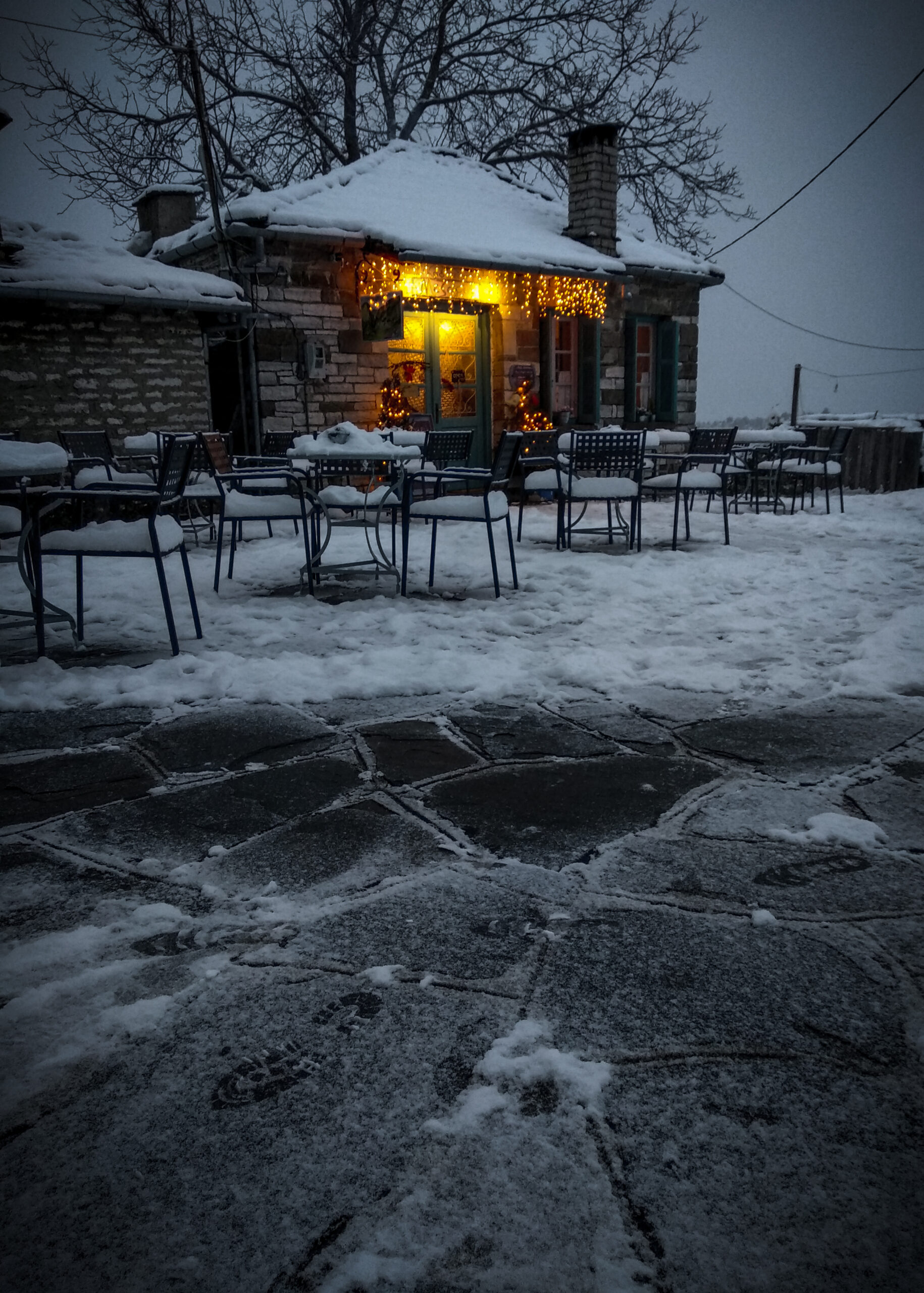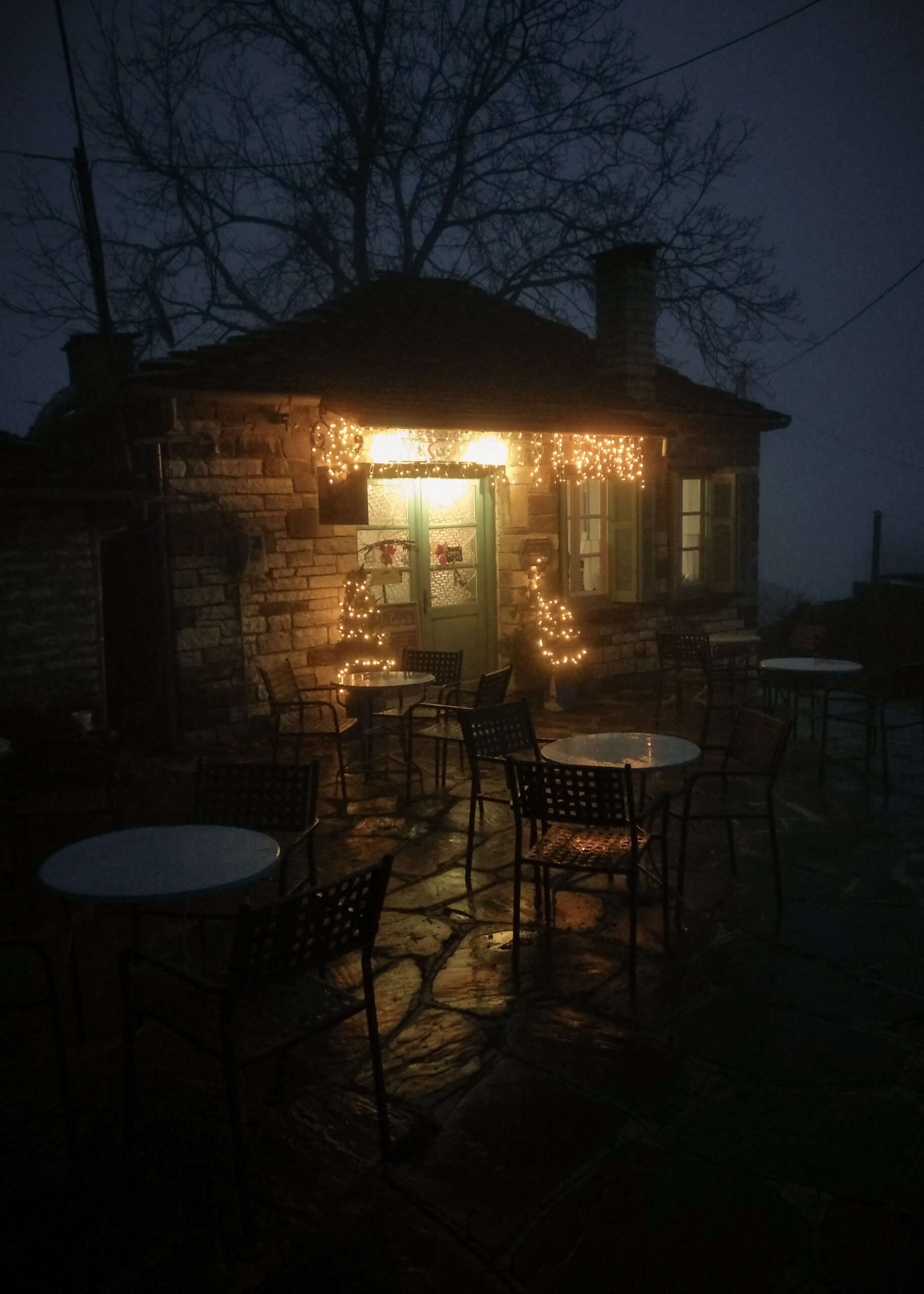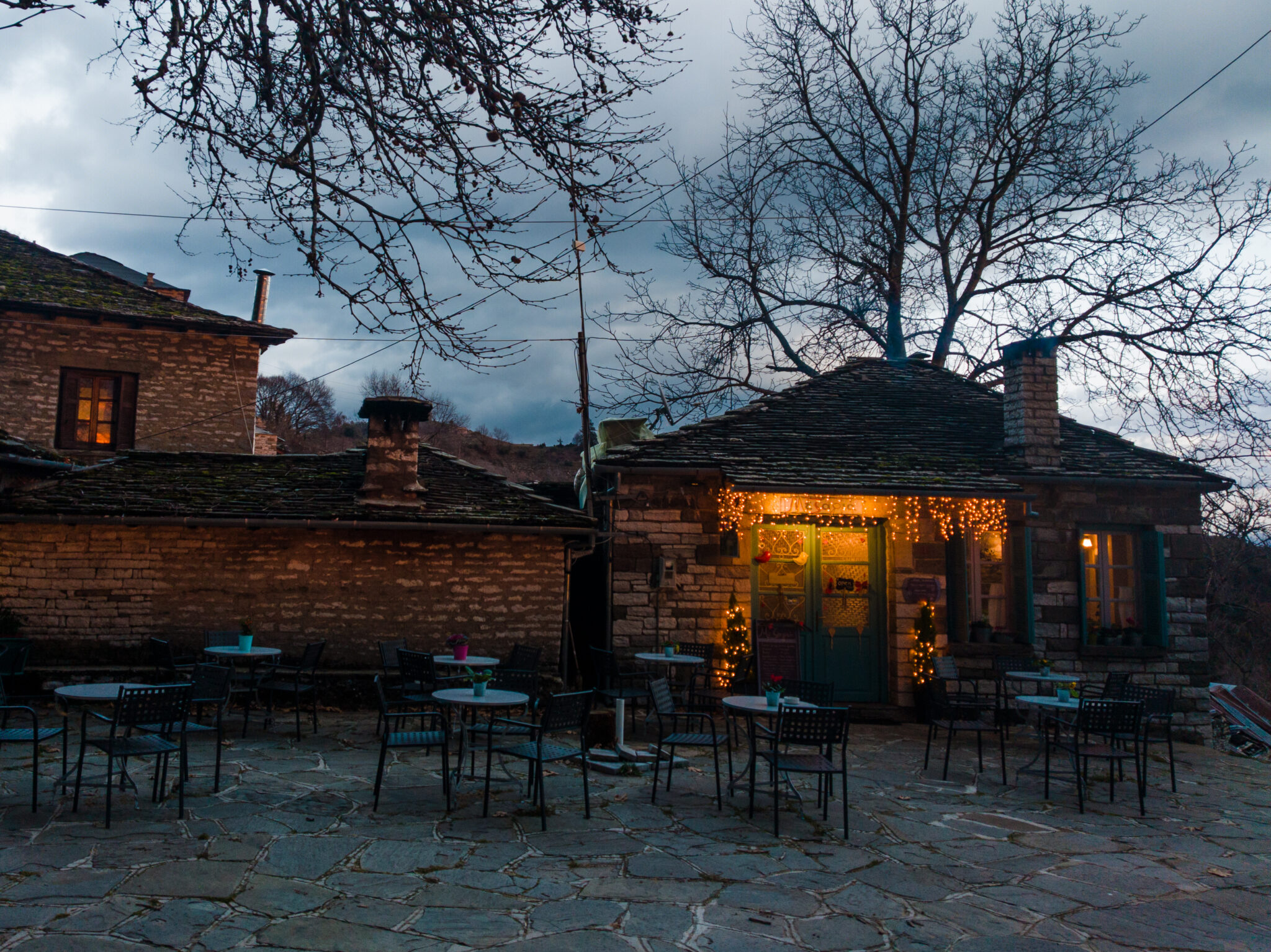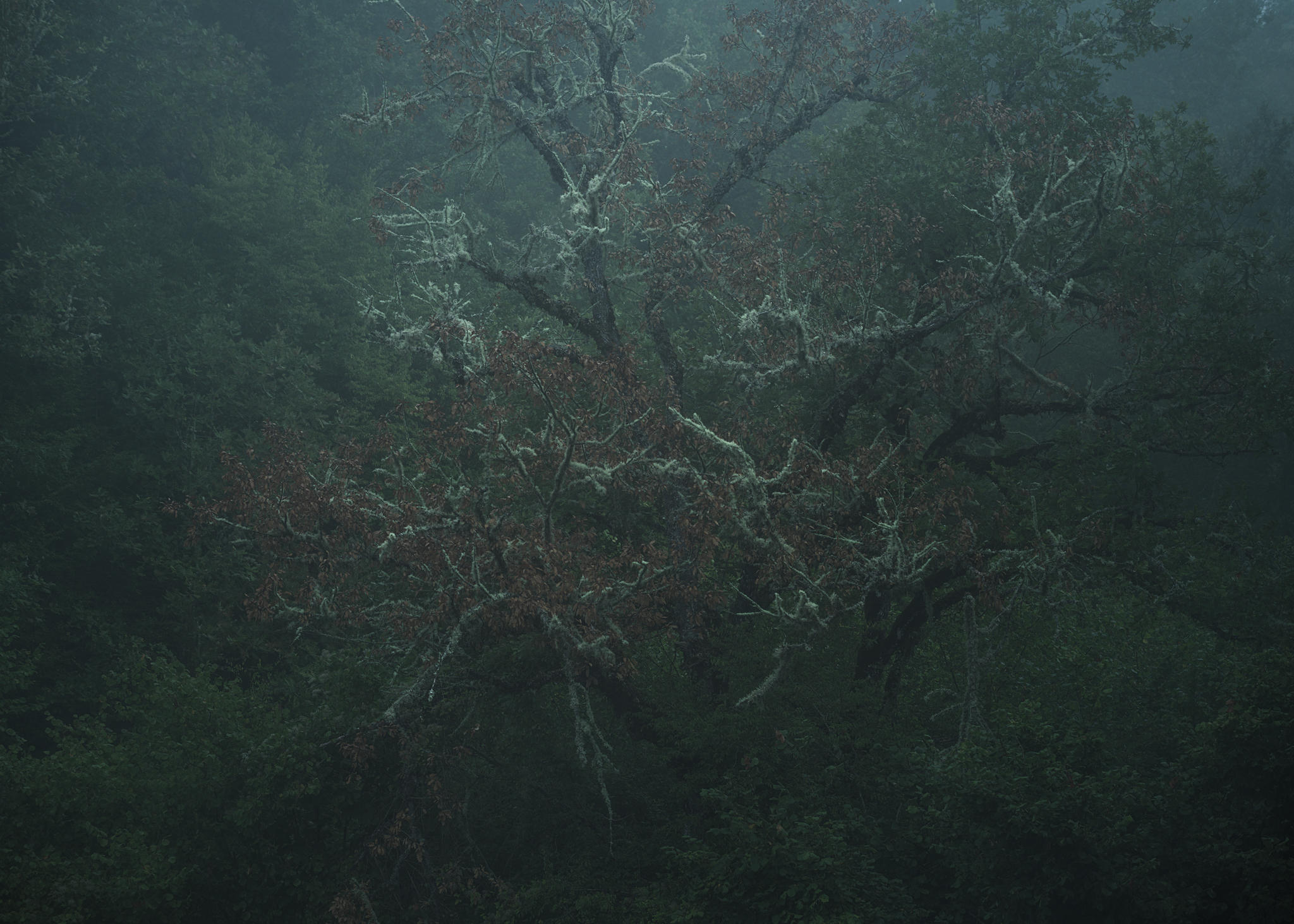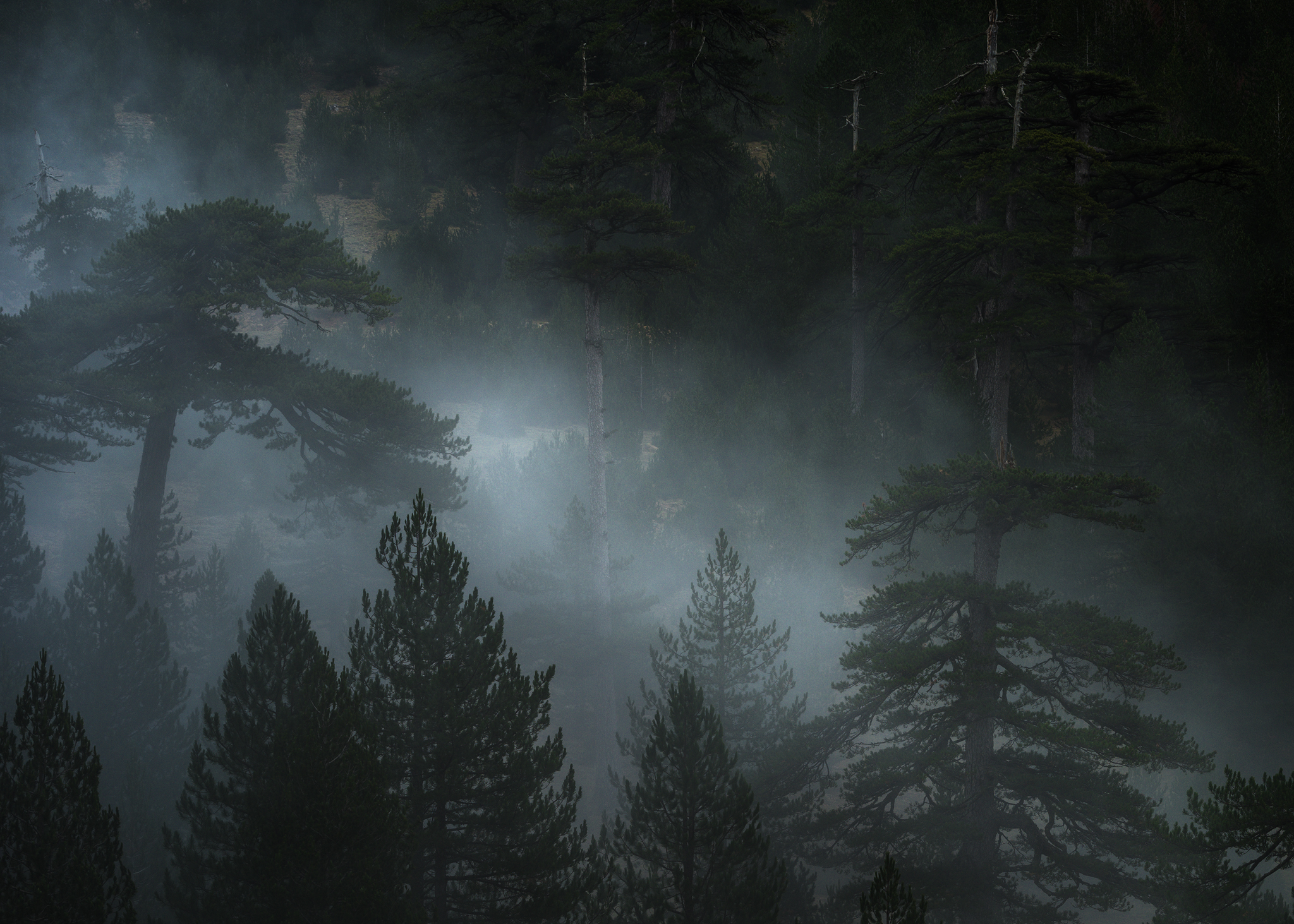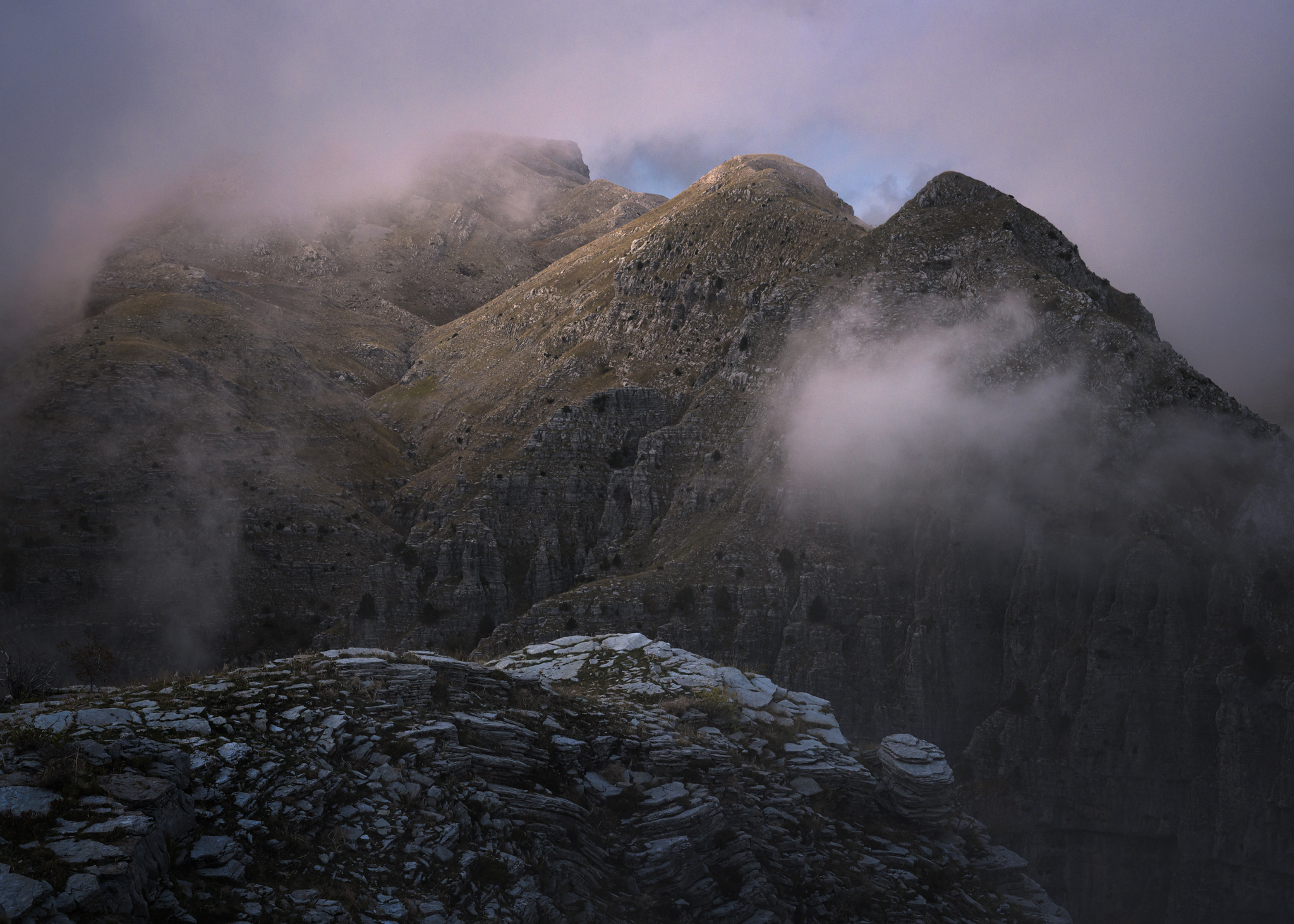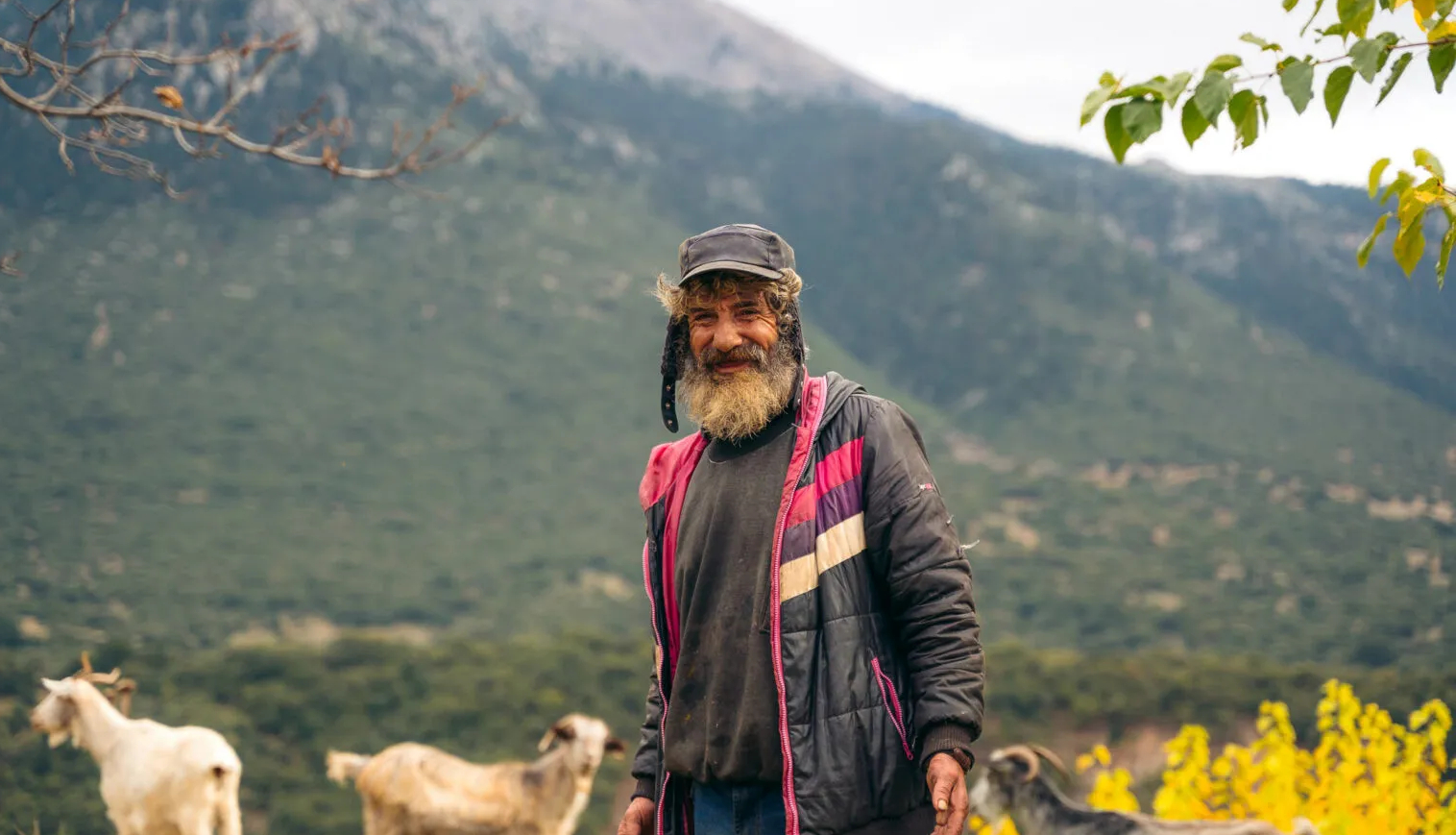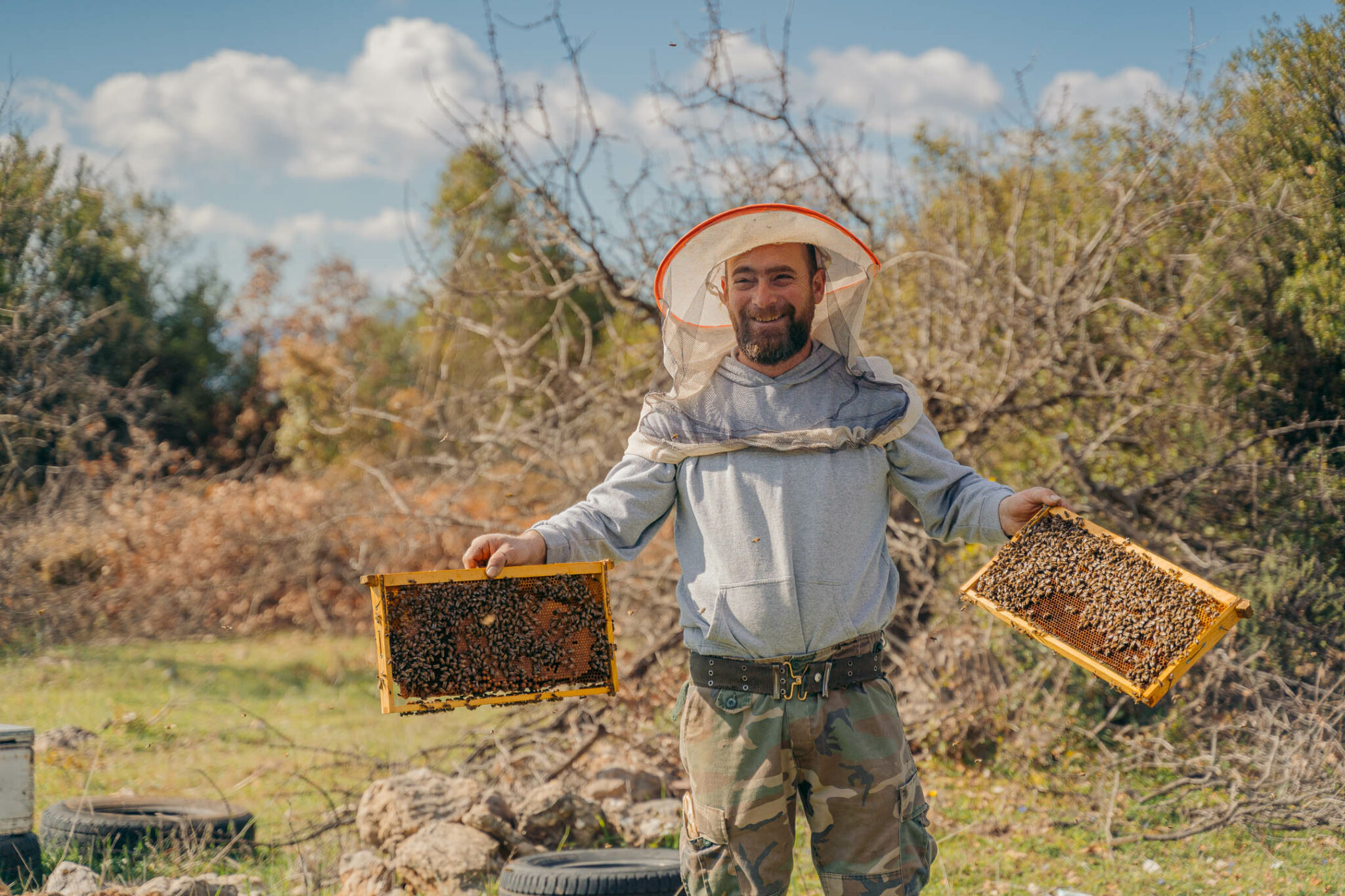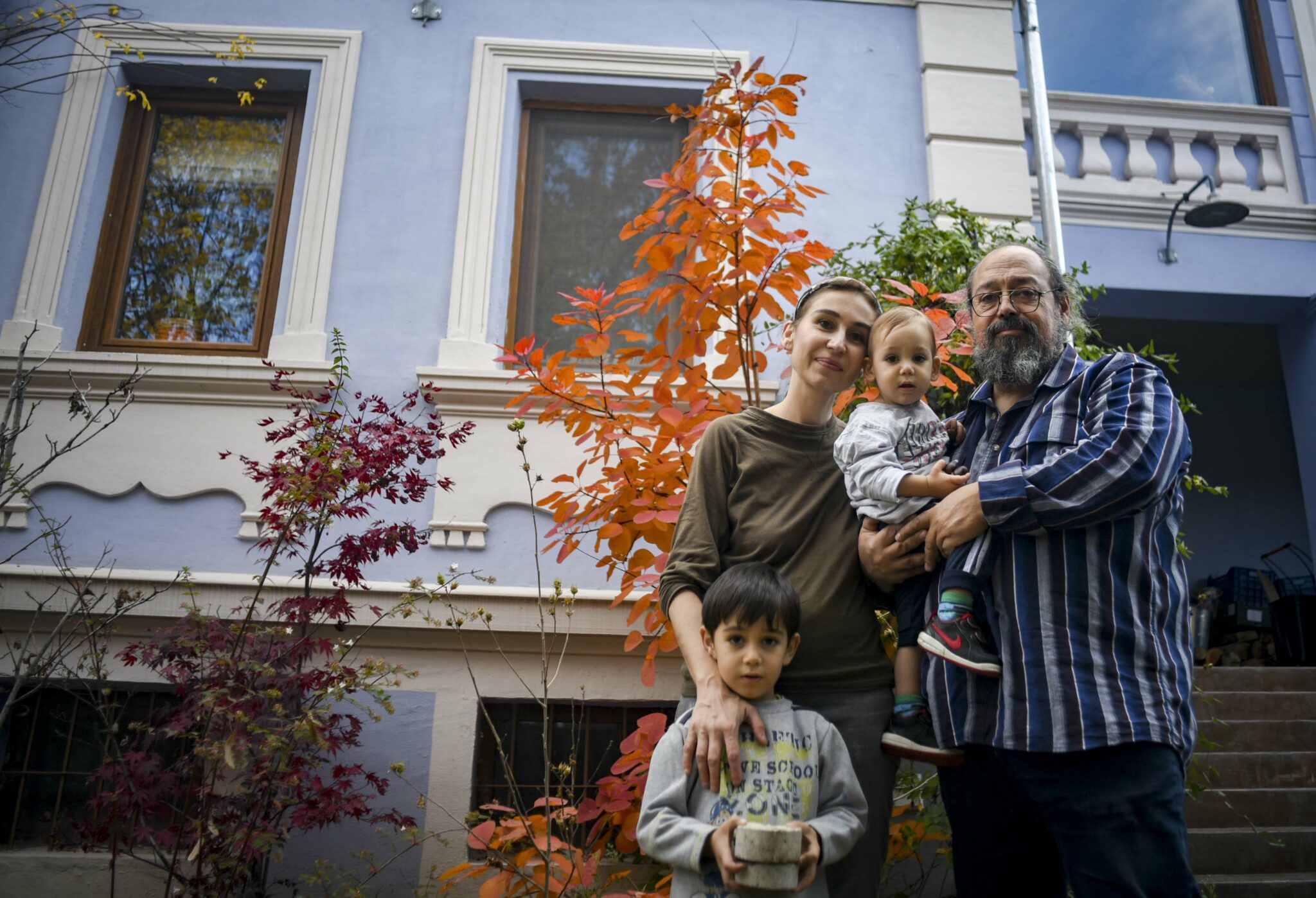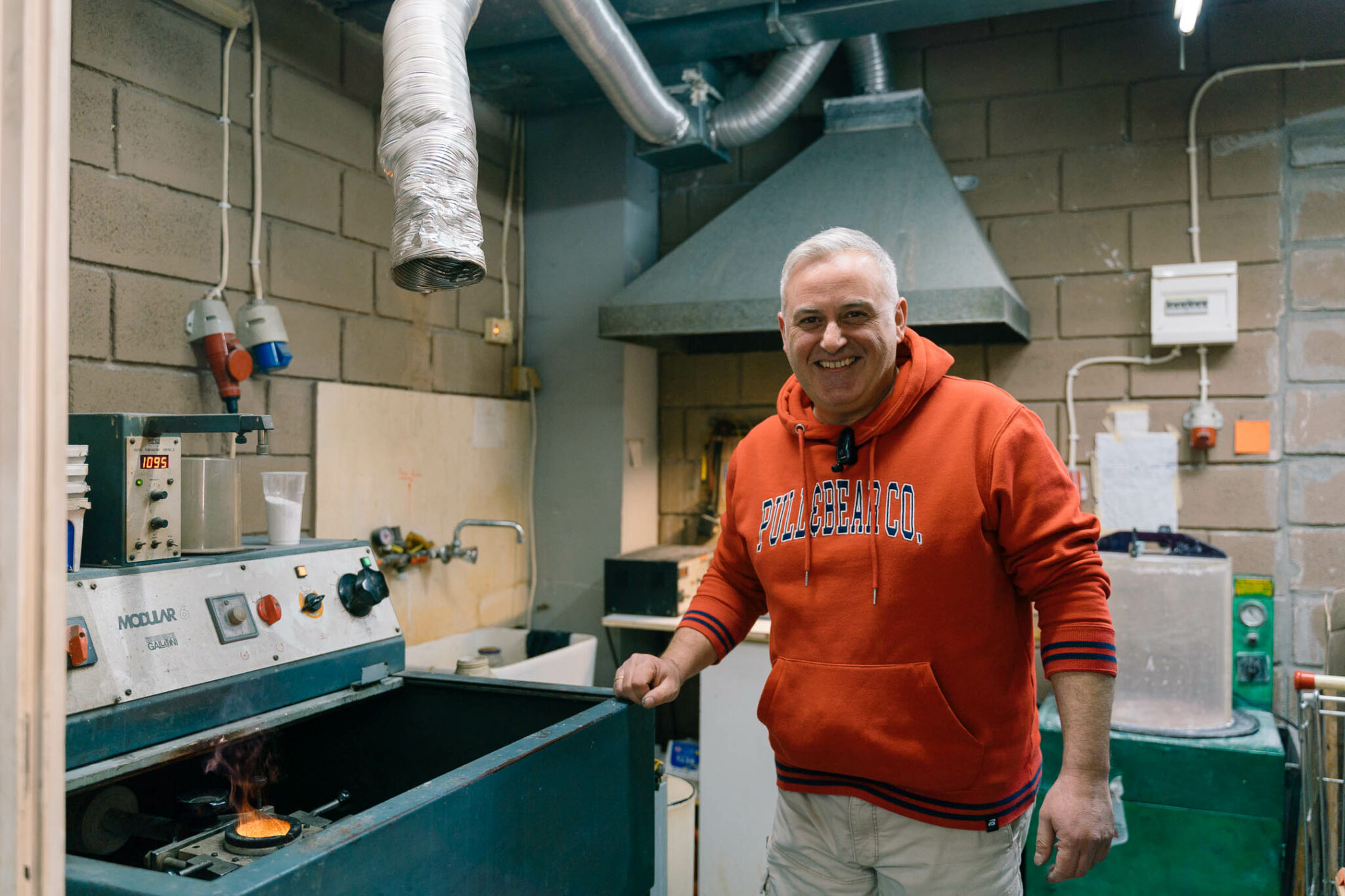I met Konstantinos Vasilakis a few years ago, during a visit to Kapesovo in the Zagorochoria region. And I met him again now, running, in his own unique way, the village’s traditional coffee shop “Mezaria”.
We sat in the sunny garden on an autumn day with magic clouds circling the Epirotic sky. And this is where he unravelled a story involving a lot of nature, travelling, photographs, and also a lot of concrete, traffic, and choices. If in the end we are our choices, Konstantinos dared to turn everything upside down. He took his cat with him, and now looks at the world from a 1100 metre altitude. From the Epirotic mountains. What does he think of his decision to come live in the mountains now, almost ten years later? His answer is enlightening. Enjoy!
So, one day you decided to leave your life in Athens and move to the mountains of Zagori. What were your thoughts before this move?
Not many, to tell you the truth. One thing was clear in my mind, that I had to leave this place. After 33 years Athens had become unbearable to me. You see, thanks to landscape photography, I’d I caught a glimpse of the other Greece. The Greece that exists and breathes away from traffic, away from the many cars, and the concrete buildings. By then, my return to the city each time made me feel bad. I remember clearly that Tuesday night, I returned home to Nea Smirni, after a trip to mount Tymfi and Smolikas, two of the most beautiful mountains in Greece. 5 days camping in the forest in autumn, my clothes smelled of wet earth and fir trees. I didn’t want to wash them because I wanted to preserve the smells and with them the memories they brought. Going to bed that night I thought: enough. Enough smog, enough working at the office, at the time I was working as a civil engineer, enough traffic, enough concrete. I told my parents, I grabbed my cat, and I left. I made a stop in Ioannina until the house in Kapesovo was built, and, as soon as it was ready, I headed there. I have never once thought about returning in these past ten years.
So, your love for the mountain brings you to Zagori. What did you leave behind?
My family and a few friends. I brought my cat, Mixa, with me. As you can tell, someone who decides to leave a place where 5 million people live and go to a village with only ten residents is not a typical example of a social person. The building I lived in in Athens had more residents. My family is used to us all being all over the place, as far as where we live is concerned. My sister, as a kindergarten teacher, has been all over Greece, and I lived abroad during my studies, and then travelled around often to take photographs. So, in a way our parents had been trained. Of course, my friends were sad, but because they know me very well, they understood and encouraged me quite a bit. We wouldn’t see each other as often as we did in Athens, nor would we party as we did in the past. But, thankfully, my friendship with most of them goes way back, we’re friends since primary school, while with the rest, our friendship is so strong that it wouldn’t fade, by no means. It wasn’t something to cause me stress. On the contrary, now they, too, have a house in the Zagorochoria, where they are always welcome, to come as often as they want. And they do come.
Among other things,the coffee shop becomes your new daily routine. Can you describe a day in your life in Zagori?
The coffee shop came into my life six years after I left Athens. It’s a personal project aimed at keeping myself at a tolerable level, socially, helping me talk to people, because otherwise, with the human contact I have in the past 10 years, I would just be barking now, like Ursa, the dog I got when I came here. I certainly can’t call the coffee shop a daily routine. I think I am, by far, the worst hospitality sector businessman in the area. Photography is always my main priority and the weather here is always interesting. So, even on the days when I start with intention of opening the coffee shop I see the clouds, the fog, and the gloomy weather that I really like, and instead of taking the path that leads to the coffee shop, I take my photography gear and go up to the mountain for a couple of days. Thankfully, the regulars and my friends understand. Some leave notes “we came but didn’t find you. Have fun shooting.” and things like that. I mainly operate by phone, write it down so people will know. On holidays, three-day weekends, celebrations, and in the summer, when it’s warm, I’m present and you’ll “definitely” find me at “Mezaria”, to cut myself some slack. My coffee shop daily routine, if we can call it that, is simple. I wake up, do any chores around the house that need to be done, cleaning etc, and then I go to the coffee shop. During low season I’m only open on the weekends and, as I said, in the summer and on festive days I try to be more reliable.
Is this work hard for you?
If you ignore the fact that I don’t drink coffee and I had no idea what I’m making, no, it’s not particularly difficult, with the exception of having to be socially acceptable to people who bring the city mentality to their holidays. Thank God for YouTube, it has helped me learn how to make every kind of coffee and everybody tells me I make good coffee, and I’m calm by nature and relatively polite, so I can deal with customers being particular.
Photography is a big part of your life. Can you please talk about it briefly?
Photography came into my life very early. At first I was interested in the parts; what each part did and how it worked. So, I learned relatively quickly the technical part of photography. Whenever I got any money, I would buy film and I was the group photographer, on holidays and trips, and that’s how I slowly developed a relationship with it, but at the time it had nothing artistic, though it definitely showed my love for photography. During my studies, there was a photographic lull because I got to know beer, English pubs, and women. But after I finished my studies and served my military service, photography came back into my life in a digital form this time. Since then, I’ve been trying to dedicate myself to it, and mainly I’m trying to express who I am through my photographs, not just to take a photo of a beautiful landscape. This was the main reason I left Athens. Basically, photography brought me to Kapesovo. When I was in Athens, I would study the weather forecasts, my calendar and schedules, in order to decide whether it was a good time to go to the mountain and take photos. Now, I just look out the window. After a while, I added the photography seminars that I organise in Zagori and also abroad. During this process I meet new people and make new friends. It’s my therapy.
When someone lives in the city and needs to escape, they go to the countryside. How do you deal with even a short-term return to the city now that you live in the countryside?
It’s hard. Usually, my return to the city is combined with some departure’s for a seminar abroad and I add a few days before and after the trip to see family and friends in Athens. It’s hard for me to sleep in the city. It’s always noisy. I jump in my sleep due to noises that are foreign to me now, especially at 5:00 in the morning, when they collect the recycling. It’s actually a good alarm clock. Truth is, I feel a bit out of place in the city. I walk slowly, I’m not in a hurry, I take in the details, I smile, and when I see someone doing the same, I can tell they’re not from the city either. The only thing that still remains in me from Athens is my driving behaviour. When I see the traffic, the Athenian inside me wakes up, and everything that entails. A selfish part of me I’m having trouble parting with.
Have you,even once,regretted your decision to change your life so drastically?
No.
“Mezaria” coffee shop, tel. 6944894401
konstantinosvasilakis.com
Instagram: @konstantinos_vasilakis



